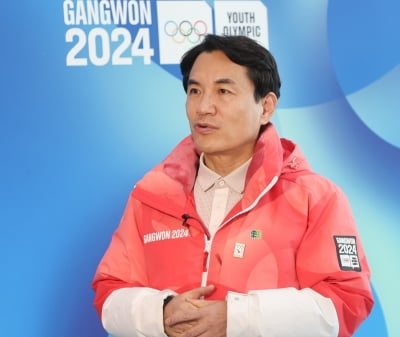Youth Olympics Chairman Choi Jong-gu

Youth Olympics Chairman Choi Jong-gu says, “It’s Just as Good as a Cultural Olympics”
“We exceeded our original goal of 250,000 spectators and reached 400,000… reaffirming our status as a winter sports powerhouse”
“Nervous due to heavy snow and cold waves on the first day of the game, low awareness and lack of publicity”
Choi Jong-gu, chairman of the 2024 Gangwon Winter Youth Olympic Games Organizing Committee, said on the 1st, "This was a successful event with more than 400,000 spectators participating, exceeding the original target of 250,000, despite low awareness and lack of publicity."
Chairman Choi said this in an interview and evaluated, “The Gangwon 2024 Games, which utilize the legacy of the 2018 Pyeongchang Olympics, are worthy of being a cultural Olympics.”
He emphasized, “As I watched the Cultural Olympics combined with K-culture being implemented, I was able to confirm that Korea is a powerhouse in the winter sports field,” and added, “Gangwon has emerged as the central center of Asia for the Winter Olympics and a mecca for winter tourism.” did.
The following is a Q&A with Representative Choi.
- Looking back and evaluating the competition overall.
The Gangwon 2024 Games was held for the fourth time since its inception in 2012, and awareness was low and promotion was lacking.
In addition, even though there was a lot of pressure to hold a successful competition due to last year"s Saemangeum Jamboree international event, the organizing committee, the Ministry of Culture, Sports and Tourism, Gangwon Province, and other related organizations worked together to finish successfully without incident.
It is expected that more than 400,000 people will visit, exceeding the original goal of 250,000 spectators.
IOC President Bach and IOC officials also called the event a successful event, citing smooth operation of the event, rapid crisis response capabilities, and excellent athlete service.
This competition was held as a youth cultural festival utilizing the 2018 Pyeongchang heritage, and is worthy of being a cultural Olympics.
- There was a norovirus case before the opening, and there was heavy snow and a cold wave right after the opening.
After three cases of norovirus infection occurred on the 17th, relevant organizations conducted an infectious disease risk factor analysis and situation assessment, and maintained a thorough quarantine posture during the competition, so there were no additional cases of infection.
In addition, a cooperative system was established with the Ministry of Land, Infrastructure and Transport, Gangwon-do, and the four cities and counties in the host region to quickly remove snow to avoid disruption to the operation of the competition.
As a measure against cold waves for visitors, quick measures were taken, such as installing heated shelters in each stadium, adjusting or shortening working hours for outdoor operation personnel such as volunteers, and operating heated buses.
- The moment when you felt the most crisis.
There was no moment that I felt was a particular crisis.
The first day of the game, the 20th, was met with heavy snow, followed by a cold wave, and the early stages were the most stressful moments as we had to deal with it accordingly.
We were able to overcome these difficulties by working through the night to remove snow and implement the cold wave measures we had prepared.
- Compared to the PyeongChang Olympics, the budget was insufficient.
It is true that awareness was low and publicity was lacking compared to the Pyeongchang Olympics.
The budget was extremely low.
We worked with related organizations such as the Ministry of Culture, Sports and Tourism and Gangwon-do to resolve the problem of budget shortages, and the donation of a total of 6 billion won from four financial organizations, including the Korea Federation of Banks, was also of great help.
- What was the impact of this competition?
The first competition held in Asia showcased a high-quality stadium and the latest technologies.
As we watched promising future Winter Olympics players emerge and the Cultural Olympics combined with K-culture be realized, we were able to confirm that Korea is a powerhouse in the field of winter sports as well.
Following the PyeongChang Olympics, Gangwon-do hosted both adult and youth competitions, emerging as Asia"s central center for the Winter Olympics and a mecca for winter tourism.
- What was disappointing was.
It is regrettable that the competition should have been promoted earlier so that more people could watch and enjoy it.
Because it was an opportunity for our youth players to grow into better players through these competitions, we had to allow more people to watch.